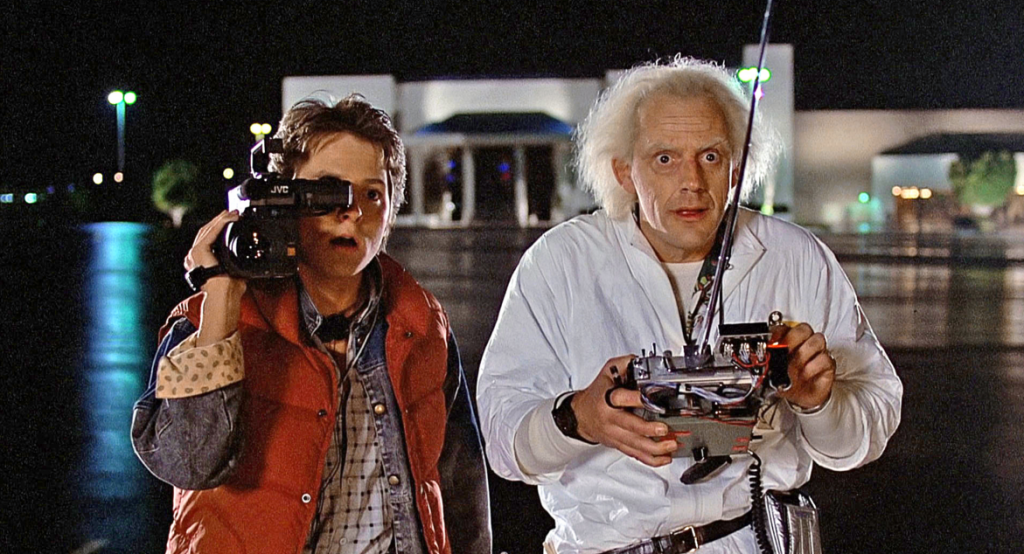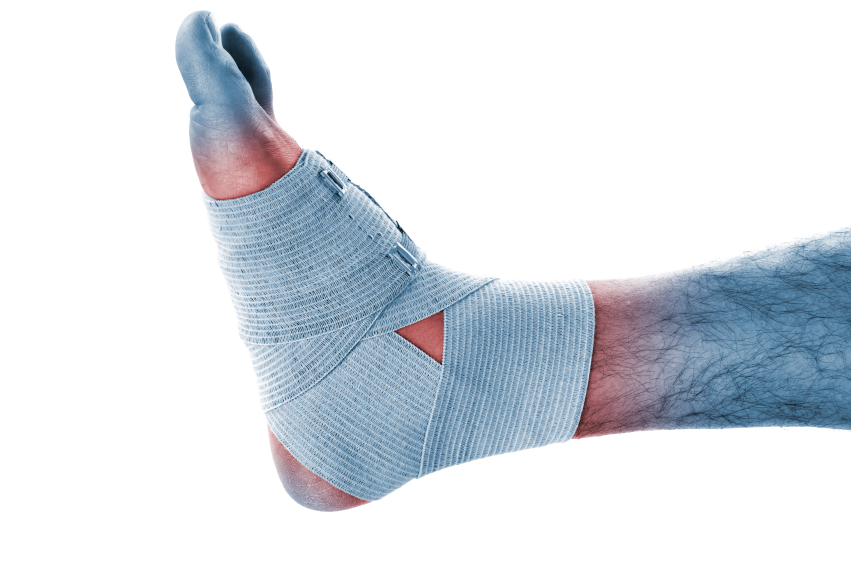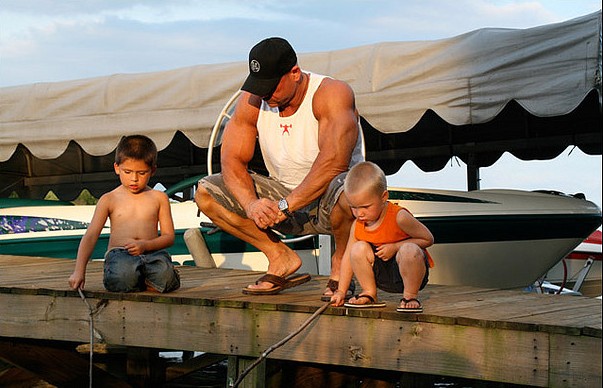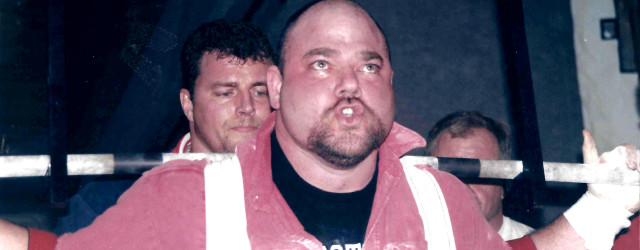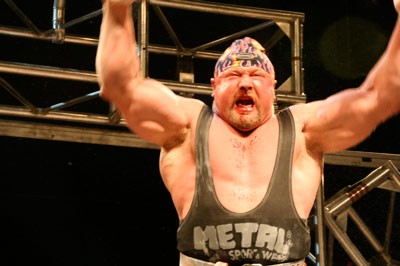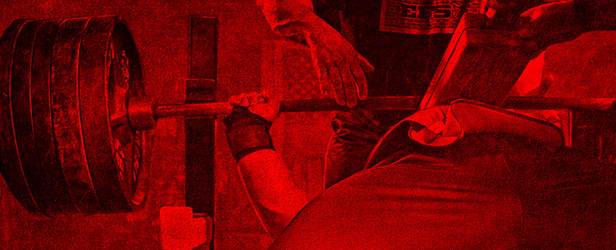
Back to the Future, an excerpt from Lift Strong via Under The Bar - I wrote this over a decade ago but all these principles stand true today.
An excerpt from the movie Back to the Future starring Michael J. Fox and Christopher Loyd.
Dr. Emmett Brown: Then tell me, ‘future boy,’ who is president in the United States in 1985?
Marty McFly: Ronald Reagan.
Dr. Brown: Ronald Reagan? The actor?! Who's vice president? Jerry Lewis?
---
Amazon.com video review of the movie Back to the Future:
{Filmmaker, Robert Zemeckis, topped his breakaway hit, Romancing the Stone, with this joyous comedy with a dazzling hook—what would it be like to meet your parents in their youth? Billed as a special-effects comedy, the imaginative film (the top, box-office smash of 1985) has staying power because of the heart behind Zemeckis and Bob Gale's script.
High schooler Marty McFly (Michael J. Fox during the height of his TV success) is catapulted back to the ‘50s where he sees his parents in their teens and accidentally changes the history of how mom and dad met. Filled with the humorous ideology of the ‘50s and filtered through the knowledge of the ‘80s (actor Ronald Reagan is president, ha!), the film comes off as a Twilight Zone episode written by Preston Sturges and filled with memorable effects and two wonderfully off-key, perfectly cast performances—Christopher Lloyd as the crazy scientist who builds the time machine (a DeLorean luxury car) and Crispin Glover as Marty’s geeky dad. Followed by two sequels. —Doug Thomas}
---
What does this movie have to do with addressing weak points?
First, let’s define weak points.
Weak points are anything that keeps you from getting what you want. In sports and training, these are usually mental, technical, or physical. While I can describe these in a very complex fashion, I find it better to always fall back on my experience when discussing training. For more than three decades, I have been around, competed with, and trained with many of the best lifters in the world. I attribute what I have learned from these experiences and the success I have had to overcoming weak points.
Now, the trick becomes how to pass all of this on to you in a way that you’ll remember—a way that will stick, something you can actually use. I strongly feel that the information contained here can completely change the way you see training and can lead to greater results than you ever thought were obtainable.
The question still remains—how do I share this in a way that you’ll remember?
This is where “Back to the Future” comes into the picture. This movie, combined with a few stories, will act as “triggers” to help drive these simple concepts home. When a concept is tagged with a trigger, it becomes very powerful. Staying in theme with the movie, let’s catapult back in time and see how this will affect your future.
Let the journey begin…
Marty McFly: What if I send it in and they don't like it? What if they say I'm no good? What if they say ‘Get out of here, kid. You got no future.’ I mean, I just don't think I can take that kind of rejection. Jesus, I'm starting to sound like my old man!
January 1975
After watching Pittsburgh beat Minnesota 16 to 6 in Super Bowl IX, all the kids in the neighborhood made their way outside to play our own version of the Super Bowl. I still remember my heroes like it was yesterday—Harris, Bleier, Bradshaw, Swann, and Stallworth. These guys were like gods to us. They were what we all aspired to be. They were warriors on the gridiron, and on this day, we all felt connected to them.
As we played in a mud-filled lot, the hits were harder, the passes longer, and the runs faster. This was a day that we were giving it our all and nothing was going to stop us. The day tuned to dusk, and we kept going. The air got colder and the ground harder, but for this group of back lot kids, this was the best day of our lives. I was having the time of my life. Being much younger and smaller than the rest, I stood my ground and gave it my all.
It was third and long, and the play was drawn in the mud. This bomb was going to me. This was it! This was my chance to be just like Lynn Swann. The count was made, the ball snapped, and I took off as fast as I could. I remember running with everything I had and feeling like an NFL pro. Within 15 yards, I was wide open. Ten more yards and the ball was in the air heading my way. Finally, this would be my day. This would be the day that the other kids would stop seeing me as the “last pick.” This was my destiny.
As I turned for the ball, I heard a snap. I fell to the ground. My foot got caught in a storm drain, and I twisted my ankle. Seconds later, I was lying in mud with the rest of the kids standing around me.
Loser!
Girl!
Pussy!
These were the words I remember the most. There I was face in the mud, and they were still kicking dirt in my face.
Moments later, I pulled myself up and headed home. As soon as I walked into the house, a disappointed look on my face and tears in my eyes, my mother suggested that I take a bath. So I headed off to the bathroom to start the water. My dad, however, never moved out of his chair. He saw me limp in the house and asked me to come into the front room with him. As I trounced through the house trailing mud to get to him, the tears got worse. Yes, my ankle hurt, but the pain was not from this. By the time I got to him, all I wanted was his support and for him to tell me how bad the rest of the kids were.
“Is the game over?” he asked me.
“No,” I replied. I told him that I got hurt and had to come home.
“Is the game OVER?” he said.
I was speechless and didn’t know what to think. He said to me, “Pain is part of the game. Live with it.” He then told me to get my coat back on and go back out and finish the game.
This scared the shit out of me. Not only could I not walk, but I didn’t want to go back to the abuse. My father insisted though, and I found myself caught between a rock and a hard place. The next thing I knew, I was back outside finishing the game.
You may be asking yourself what this story has to do with overcoming weak points. Then again you might think you’ve already figured it out.
Maybe this motivated you.
Maybe this reminded you of your past.
Maybe it confirms your beliefs that you have to play with pain.
Maybe you’re all wrong.
What this shows is that my dad is the reason for all the injuries I’ve suffered throughout the years. He is why I push harder when I’m hurt, and HE is the reason why I pushed so hard. He is the reason why I never rested long enough. If it wasn’t for HIM, things would have been so different.
Do you buy this load of crap?
Then why do all of you do the same thing every day?
The first rule of addressing weak points is to understand that they’re YOUR problem caused by things that you did or didn’t do. Got it?
Let me ask that again. You got it?
Marty McFly [being chased by terrorists]: Let's see if you bastards can do 90.
June 2003
My family and I finally moved into our dream lake house. Within minutes, I can be fishing off my dock. I remember the first trip down to the dock. I had my fishing pole and worms. I tossed the line out, reeled it back in, tossed it back out, and after some time, I felt the line pull. Then it pulled again. It had been 20 years since I had fished, and I had forgotten the rush you can get when you get a tug on the line.
A couple minutes later I had a fish! I was jacked up and felt like the best fisherman in the world. Actually, at the time, I was the best fisherman on my dock. I was the most advanced one there, and I may have been the most advanced fisherman on the lake at that time. I knew all I needed to know for the circumstances that I was in.
Later that summer, my father-in-law came over with his pole and a huge tackle box full of gear. In no time he was pulling in fish left and right. All of a sudden I didn’t know anything and was no longer advanced. I was back to being a beginner.
The funny thing was that the entire time he was teaching me the fishing game, he was talking about a trip he had just taken to Lake Michigan and how this fishing guide made him feel like he didn’t know anything. I found this strange because here I was feeling like a beginner, and at the same time, he was talking about exactly how I was feeling.
How could we both be beginners if at one time I was the best on the dock and he was a far better fisherman than I was with years of experience? This is a very simple concept that everyone seems to miss.
Your status is dependent upon your surroundings, not what you know or what you’ve done.
If you asked me if you were a beginner, I would ask you where you had trained and who you had trained with.
Here’s the lesson and how this relates to overcoming weak points. Think back to anything you have ever done. When did you have the highest rate of success in proportion to the rest? This was as a beginner. The beginner always makes faster gains than the advanced guy. ALWAYS. So, if you want to keep making progress, always place yourself in the role of the beginner. If you are the strongest at your gym, find stronger people to train with. When you are the strongest there, find someone else. There are always stronger people out there so seek them out. Ever wonder why people advance so fast in small powerlifting gyms? It’s because the top dog has a bigger bite.
Always find those who are better than you.
Dr. Emmett Brown: Don’t worry. As long as you hit that wire with the connecting hook at precisely 88 mph the instant the lightning strikes the tower...everything will be fine.
1050 B.C. (approximately)
Goliath, a Philistine champion from Gath, came out of the Philistine ranks to face the forces of Israel. He was a giant of a man, measuring over nine feet tall! (1–1 Samuel 17:4)
Goliath stood and shouted across to the Israelites, “Do you need a whole army to settle this? Choose someone to fight for you, and I will represent the Philistines. We will settle this dispute in single combat!” (1 Samuel 17:8)
…As he (David) was talking with them, he saw Goliath, the champion from Gath, come out from the Philistine ranks, shouting his challenge to the army of Israel. (1 Samuel 17:23)
He picked up five smooth stones from a stream and put them in his shepherd’s bag. Then, armed only with his shepherd’s staff and sling, he started across to fight Goliath. (1 Samuel 17:40)
Goliath walked out toward David with his shield bearer ahead of him. (1 Samuel 17:41)
“Come over here, and I’ll give your flesh to the birds and wild animals!” Goliath yelled. (1 Samuel 17:44)
As Goliath moved closer to attack, David quickly ran out to meet him. (1 Samuel 17:48)
Reaching into his shepherd’s bag and taking out a stone, he hurled it from his sling and hit the Philistine in the forehead. The stone sank in, and Goliath stumbled and fell face downward to the ground. (1 Samuel 17:49)
He ran over and pulled Goliath’s sword from its sheath. David used it to kill the giant and cut off his head. When the Philistines saw that their champion was dead, they turned and ran. (1 Samuel 17:51)
The stronger athlete isn’t always the winner or the best. But neither is the most functional, mobile, flexible, or fastest or the one with the most endurance. The best athlete is the one who’s best at what they do.
Let’s step back and define some things. General physical preparedness (GPP) is performing movements to help improve your level of conditioning. Specific physical preparedness (SPP) is performing skills that are specific to improving your performance. The bottom line is the better the SPP the better the athlete. We’ve seen this hundreds of times. The best athletes are those who are best at their game because they excel at their associated SPP. David beat Goliath because his fighting skills were better. He wasn’t the strongest, but he was the most skilled.
There are three, take-home lessons here, each addressed to different readers. If you’re an athlete, are you working your skills? Not just in practice but all the time. These skills are the most important aspect of your game. As a lifter, these skills are technique. If you ever get the chance to see an elite powerlifter compete, please do so. This is even better if it’s at a local or state meet. Compare the technique to the other lifters.
My question is why is it so different? This isn’t a “chicken and the egg” thing. It’s very clear what needs to be done. The lower skilled athletes are too concerned with the training programs and equipment used by the top guys and can’t see what’s right in front of their faces. I’ve seen technical adjustments put 100 pounds on a lift. Do you have any idea how long it takes to get 100 pounds stronger? I can tell you this—not as long as it takes to make your technique better.
For strength coaches and trainers, when working with athletes, have you spoken to the position coaches? Honestly, have you called them or met with them? Now, if they hired you to make them better, why haven’t you done the one thing that could have the greatest affect? Think about this for a minute. You have them all do a warm up, right? What if this warm up could be made up of skill drills that their position coach feels would help the athlete most? Now, the athlete could work these skills (under supervision to make corrections and adjustments) multiple times throughout the entire off-season. You think this might have an affect on their game?
Lastly, if you don’t know the skill, don’t do it or teach it. As an athlete, the worst thing you can do is reinforce bad skills and patterns. As a coach, the worst thing you can do is try to teach what you don’t know or worse yet what you think you know but don’t know.
Let me explain with something very simple—the squat. The injury rate for the competitive powerlifter and the squat is extremely low. Actually compared to other sports, the total injury rate for competitive lifters is very low. Very rarely does a competitive lifter miss a squat session (otherwise known as their practice) or get hurt training this lift. Yet, many coaches and trainers will tell you NOT to do them for fear of injury. What this tells me is that they have no idea how to teach the lift and by no means should ever use it.
In short, teach what you know and learn what you don’t.
George McFly: Last night, Darth Vader came down from planet Vulcan and told me that if I didn’t take Lorraine out that he’d melt my brain.
June 1999
The IPA Worlds, also known as the York Barbell Hall of Fame meet, was my first meet back from a nine-month hiatus. I took some time off to heal up, regroup, and push my body weight up higher. I was looking forward to this meet because my training was going very well and things seemed to be going my way.
As things sometimes happen, the meet got pushed back, and the 308-lb class wouldn’t be starting until 5:00 pm instead of 2:00 pm as scheduled. Well, 5:00 pm became 6:00 pm and 6:00 pm became 7:00 pm. Finally, at around 7:30 pm we were warming up and getting ready for the squat attempts. My warm up felt great, fast, and very explosive. I was definitely getting jacked up about the meet.
Twenty minutes later, I found myself sitting in the pit waiting for my lift to be called out. “Dave Tate on deck,” was called over the loudspeaker. This was my signal to begin focusing on the task at hand. At this time, one of my helpers began getting my wraps and everything else in order.
“Dave Tate in the hole,” came over the loudspeaker. Now, we were one lifter out, and my wraps needed to be pulled on. “TIGHTER!” I shouted to my helper. “PULL THE SHIT OUT OF THEM!” I demanded. Seconds later, I was standing with one helper on each side of me pulling my straps out, helping with my belt, smacking the back of my head, and sticking an ammonia cap up my nose. These times right before I hit the chalk will always go down as some of the best moments of my life. The anticipation, the aggression, and the work it took to get to this moment—all of it is unmatched! Finally, “load the bar to 860 lbs for Dave Tate.” This was a weight I’ve squatted several times before, and it was to be my opening attempt.
Full of range, I began chalking my hands. This is the moment with every big lift that I “detach” from myself. Actually, rarely do I remember anything from the time I leave the chalk box until after the lift. I have been here so many times before that all I have to do is get in state and go into autopilot.
However, this lift I do remember because I couldn’t get it out of the rack. I remember trying to stand up with the weight, but I couldn’t budge it. It felt welded to the rack. I tried a few times and still nothing. This pissed me off to no end so I stepped back and increased my rage as high as I could, got back under the rack, and NOTHING.
At this point, my helpers had to step in, and I was pulled away from the rack. Needless to say, this was NOT a good moment for me. Nine months of training and I can’t get my damn opener out of the rack. I was pulled back into the warm-up room by my helpers to try and figure out what the hell the problem was. Just then, I heard one of my training partners, who I trust with my life, say, “Dave, you’re done. Pull out.” At this point, I figured he was just trying to piss me off. But I looked back at him, and he said, “Seriously, you’re done. Pull out, and we’ll talk later. It’s not worth what could happen right now.”
Like I said, I respected and trusted this man with my life. He was and is now one of the best coaches in the world, and I was part of his team, the Westside Barbell Club. This club is known to be the strongest gym in the world, and I was one of Louie’s boys. Perplexed, I pulled out of the meet and found myself eating hot dogs while the rest of my team went on to lift well.
What the hell was my problem?
Why can’t I just have one good meet?
What the hell was I missing?
What was my weakness and how could I fix it?
On the drive home, I told Louie that I didn’t understand what the hell had happened. My training went well. I was as strong as hell on everything in the gym. Just then he stopped me and said something that I’ll never forget.
“And this is exactly what the problem is.” he said. In my mind, I was thinking he was out of his mind. How can being strong in the gym be a bad thing?
“You know what you need? You need to do those things you suck at,” Louie said as we turned onto the interstate. “You’re at a point where your weaknesses are killing you, and you’re doing nothing to address them. Your legs can easily squat a grand. Your upper back can easily support it, but your abs and lower back can’t squat 860 lbs right now. You have some muscles that can squat 1000 lbs and others that can’t squat 860 lbs. So what do you think you will squat? What you need to be doing is reverse hypers and standing ab work!”
Then it hit me, and I saw the light. In training, I hated doing reverse hypers and standing ab work. As a matter of fact, I hated all lower back and ab work so I didn’t do much of it, and to be honest, I skipped it most of the time.
You see, if you have a weak point, there’s a very GOOD reason for it. It was caused by NOT doing the stuff that you don’t like to do. Here lies the difference between competitive athletics and working out. You can always get into better shape by doing things that you like to do, but to excel at a sport, you have to master doing the things that you hate to do.
For the next six months, I trained my lower back and abs four days per week at the beginning of every session and at the end of each session. At the Nationals in November, I squatted my first 900 lbs. For the next meet, I increased my torso training to six days a week with three days being very heavy and three days being light. In July, at the same meet that I had had to pull out of—the IPA Worlds—I squatted 860 lbs, then 905 lbs, and onto an easy 935 lbs. While training for the 935 lbs, my main gym lifts that I had bragged about being so strong were actually down 15 percent from the previous year. However, my torso strength was the strongest that it had ever been.
Weak points are developed by NOT doing the stuff that you suck at.
George McFly: Uh, well, I haven’t finished those up yet, but you know I...I figured since they weren’t due till...
November 2002
This was the second year that EliteFTS had hosted the IPA Nationals. While it’s always nice to give back to the lifting community, it’s also a huge task full of months of hard work preparing for the event. Knowing that everything was in order, my wife and I decided to take a vacation a couple weeks before the event. This would allow us time to unwind and get ready to put on the best competition that we could for the lifers.
Right before we left for vacation, a friend of mine and fellow teammate, Chuck Vogelpohl, had the misfortune of rolling his car into a ditch. This happened one week before we left for vacation, and the only way that I knew about this was because he had had the police officer bring him into the gym so that he could train his squat. Chuck was training for the Nationals and didn’t want to miss a single session regardless of the numerous scrapes and bruises he had just received. Not to mention, he still had to find a way home. None of this ever dawned on him. All he knew was that he had to do what he had to do.
We returned from vacation, and a couple days later, I was back in the gym. As I walked into the gym, one of my other teammates came over and asked me, “Did you hear about Chuck?” I figured this was kind of old news at this point so I said, “Yea, he rolled his car before I left.”
“No, no, no, Dave. He rolled the rental car three days ago,” he told me with this “I can’t believe this happened” look on his face.
You’re kidding me, I thought to myself. How in the world can you roll two cars within ten days, especially when those ten days also happen to fall within the last two weeks before the nationals? Minutes later, Chuck walked in carrying his gym bag and began getting ready to embark on his last bench press session before the meet. Not only was he carrying his bag, but he also had new scrapes, cuts, and bruises to go with the old ones from the week before.
I asked him how he felt, and he said, “Real good. Only one week to go.” We then went onto our training for the day. Not one word was ever said about the second accident. It never dawned on him to talk about the second accident. All he knew was that he had to do what he had to do.
Six days later, we were at the meet and things were running perfectly. Everything was set up, the lifters were happy, and the women and light weight lifters were getting ready to start. At that moment, Chuck limped in holding a gallon jug of water. He had been there to weigh in and would be lifting the following day. I asked him how the weigh in had went, and he told me that he had made weight and was ready to go. I asked him about the limp, and he told me that he had pulled a glute but that it was no big deal. He should have a good day tomorrow.
I remember thinking to myself, this guy has been in two car accidents in the past two weeks and shows up to the meet with bruises all down his right leg. Then somehow he manages to pull a glute two days before the meet. Seriously, what the hell is he even doing at the meet?
This of course never dawned on him. All he knew was that he had to do what he had to do.
The next day, I was sitting in the head judge’s chair. Part of my job for the day was to judge as well as run the meet. The only break I would get from judging is when my teammates or friends would lift. At this point, I would step out to allow someone else to judge. I did, however, get to judge all other lifters.
As I was sitting in the chair, I glanced up to the lifting order and noticed that Chuck’s opening squat attempt was 900 lbs. Confused, I flagged down Louie Simmons to ask him what the hell Chuck was doing. His best squat to date was 860 lbs, and he was opening with a 40-lb personal record. Louie just looked at me and said, “Yea, well you tell him.” I have known Chuck for many years, and I can say that there was no way I was going to tell him because he wouldn’t listen. Regardless of what I would have said, it wouldn’t have mattered. He had to do what he had to do.
Chuck screamed out for his opening attempt, and I mean screamed. He’s known as one of the most intense lifters to ever step on the platform, and while he may not be loud, his intensity is contagious. When he lifts, he has “something” that I’ve only seen in a couple other lifters. He’s also a huge crowd favorite so as he approaches, the crowd stands to their feet. His range and intensity can be felt by everyone in the room.
Chuck got set under the bar and began to descend and descend. But he never got back up. He just got, as we in the game like to call it, “stapled.” Needless to say, he missed the weight. I felt bad for him. After all he had been through to get to this point, it sucked to have it end like this. But I figured that he would probably learn from this and pick his openers better next time. As I headed back to the judge’s chair, I heard Louie call Chuck for a repeat. In a meet, you have three attempts. If you miss one, you can keep the weight the same or go up. But you can’t lower the weight. Chuck decided to give it another shot.
After getting “stapled” with a 40-lb personal record, most would have pulled out, but Chuck just did what he had to do.
As I sat judging the rest of the lifters, I kept an eye on the lifting order board to see what was going on. It was then that I noticed Chuck had increased his second attempt to 950 lbs. This would be the second highest squat of all time and a world record for this federation for his weight class. I was amazed at the call, but he was also a friend and teammate so I was also concerned. Once again, I called Louie over and asked him what the hell was going on. Once again, he told me, “You go tell him.” At this point, I was about to lose my mind. I told Louie that I wasn’t able to go tell Chuck because I had to stay and judge. I told Louie that he had to tell him.
I reminded Louie that Chuck had been in two car accidents within two weeks, pulled his glute, and opened with a 40-lb PR that he just got SMASHED with. Once again, Louie told me, “You tell him.” So I got my ass up and walked into the warm-up room. As I made my way through all the Gatorade bottles, gym bags, squat suits, plates, and platforms, I saw Chuck with his helpers in the corner. As I approached, they were rubbing out his quads and his eyes were focused on the ground. A few steps later, he looked up and caught my eye.
The look in his eye told me that it didn’t matter what I said. He was going to do what he had to do.
Moments later, the crowd was on their feet again, and the music was cranked. Out came Chuck as intense as I have ever seen him. For a moment there, I actually thought he might have a change. The crowd grew louder, and he grabbed the bar and set his hands. Next, he set his right foot and then the left. Finally, he ducked under the bar to get ready to unrack the world record weight.
He set the weight up and pulled his chest and torso with all the air he could. With one slight hip adjustment, he pulled his head up and began to sit back. As he lowered the weight, I felt a deep pit in my stomach. I just wished that he wouldn’t get hurt. Then he hit parallel and BLASTED the weight back up like it was an empty bar. Literally, this was one of the most impressive and easiest lifts I have ever witnessed.
Chuck went on to call for 970 lbs on his third attempt, which would make the highest squat for his weight class of all time. He later changed it to 1000 pounds! This would make him the lightest man ever to do it.
Did he do it?
What do you think from the man who just had to do what he had to do?
So what do I mean by saying he had to do what he had to do?
This is what I feel is the number one weakness that everyone has. This ranges from the weekend athletes to the professional athletes. The only difference between the two is that the professional athletes do the right things more frequently than the weekend warrior does. Every golfer will tell you about great hits that they have made, but the pros do it more often.
Why is this? What separates the two? Like Chuck, the most successful people live in the present. It’s very easy to write out and plan goals. It’s easy to find a diet to follow or a training program to do. It’s also very easy to sit back and ride the glory of the past. But it’s totally different to LIVE it all right now.
The decisions that most athletes focus on are what they’ve done in the past or what will affect their future. However, in all reality, the past is nothing more than a bunch of presents that have already happened. The future is the presents yet to happen. In other words, you can’t change the past or predict the future, but you do have control over what you do right now.
Are you on a diet?
Well, is it time now to eat again?
Are you eating the right stuff?
When you trained last, did you do what you needed to do or what you wanted to do?
You future is made up of all these “present” decisions.
This is doing what you have to do.
Today
In would be really easy to write an article on weak point training and discuss the proper execution of each lift or give special exercises to help bring up weak muscle groups. But these changes are only major to those who are already at the top of the game. For 90 percent of those who read this, the items discussed in the article are EXTREMELY overlooked and can have profound effects right now.
Training is not an easy process, and anyone who tells you differently has never done anything themselves. They are the same ones who credit success to genetics, drugs, or some other shortcut. The problem with this is that there are NO shortcuts.
Talk to someone at the top of the game and ask them how long it took to get there. Ask them what sacrifices had to be made. Then again, how do you know if you don’t have good genetics if you don’t give it all you have? What if after a year or two, someone tells you that you don’t have the genetics? Do you buy that crap? Show me the people who excelled at their game in two years. I know I’m using an extreme example, but think about it. Do you honestly think that changing your health and body composition won’t take effort and sacrifice? If you do, WAKE UP. You think being the best trainer or coach in the world can happen behind a keyboard? WAKE UP.
Everything in life evolves around how we overcome weak points (adversity). The reality is that most people suck at it and will always suck at it because it requires honesty and growth, being uncomfortable, and living in the present. It’s far easier to be a lazy liar who dreams of the future and blames the past on everyone else.
The simple fact is…the choice is yours.









